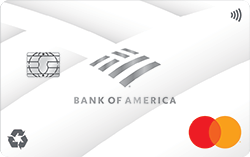The Ultimate Guide to Business Credit Cards
David Chen
Whether you're a seasoned entrepreneur, a freelancer, or just starting a side hustle, a business credit card can be a game-changer for your company. It's more than just a way to pay for expenses—it's a tool for building business credit, managing cash flow, and unlocking valuable rewards. This guide will walk you through everything you need to know to choose, use, and maximize a business credit card.
Who Qualifies for a Business Credit Card?
- Small business owners: From LLCs and corporations to sole proprietors.
- Freelancers and contractors: If you earn income from self-employment, you likely qualify.
- Side hustlers: Selling on Etsy, eBay, or driving for Uber? You can apply as a sole proprietor.
- Startups: Even if your business is new, you can often qualify using your personal credit score.
You don't need a formal business structure or an EIN (Employer Identification Number) to apply—your Social Security Number is often enough for sole proprietors.
Why Get a Business Credit Card?
- Separate Finances: Keep business and personal expenses apart for easier bookkeeping and tax prep.
- Build Business Credit: Responsible use helps establish a credit profile for your business, which is crucial for future loans and vendor relationships.
- Higher Credit Limits: Business cards often offer larger credit lines than personal cards, supporting bigger purchases and growth.
- Tailored Rewards: Earn points or cash back on business categories like office supplies, advertising, shipping, and travel.
- Employee Cards: Issue cards to employees with customizable spending limits and track expenses easily.
- Perks and Protections: Enjoy benefits like purchase protection, travel insurance, and expense management tools.
How Business Credit Cards Work
- Personal Guarantee: Most issuers require you to personally guarantee the debt, especially for new businesses. Your personal credit is checked during application.
- Credit Reporting: Some cards report activity to business credit bureaus (like Dun & Bradstreet), while others may also report to personal bureaus if you default.
- Liability: You're responsible for all charges, including those made by employees.
- Interest and Fees: Business cards may have higher APRs and fewer consumer protections than personal cards, so read the terms carefully.
What to Look For in a Business Credit Card
- Annual Fee: Weigh the fee against the rewards and benefits. Many great cards have no annual fee, but premium cards can offer outsized value for a price.
- Rewards Program: Choose a card that matches your business's biggest spending categories (e.g., travel, advertising, office supplies).
- Welcome Offer: A generous sign-up bonus can provide a big boost if you can meet the minimum spend.
- Intro APR: Some cards offer 0% intro APR on purchases or balance transfers—helpful for managing cash flow.
- Reporting to Business Bureaus: Make sure the card helps you build business credit by reporting to major bureaus.
- Employee Card Features: Look for free employee cards, spending controls, and easy expense tracking.
- Other Perks: Consider travel insurance, purchase protection, and integrations with accounting software.
How to Apply: Step-by-Step
- Gather your information: Legal business name (or your own name), business address, phone number, annual revenue, years in business, and your SSN or EIN.
- Check your credit: Most issuers use your personal credit score for approval, especially for new businesses.
- Compare cards: Use your business's spending profile to find the best fit.
- Apply online: Most applications take just a few minutes. Be honest about your business's age and revenue—even if it's new or small.
- Wait for approval: You may get an instant decision, or the issuer may request more information.
Common Mistakes and How to Avoid Them
- Mixing business and personal expenses on the same card.
- Missing payments—late payments can hurt both your business and personal credit.
- Ignoring the terms—watch for high APRs, annual fees, and penalty rates.
- Overextending your business—don't spend more than your business can afford to repay.
- Not leveraging rewards—use your card for business expenses to maximize value, but don't overspend just for points.
FAQs
- Do I need an EIN to get a business credit card? No, sole proprietors can apply with just their Social Security Number.
- Will my personal credit be checked? Yes, most issuers require a personal guarantee and will check your credit.
- Can I get a business card with a new business? Yes, approval is often based on your personal credit and income, not just business history.
- Do business cards affect my personal credit score? Usually only if you default, but some issuers report all activity to personal bureaus—read the terms.
- Can I use a business card for personal expenses? You shouldn't—mixing expenses can cause tax and legal headaches.
A business credit card is more than just a payment tool—it's a foundation for your company's financial health and growth. Use it wisely, pay on time, and let it work for you as you build your business dreams.

